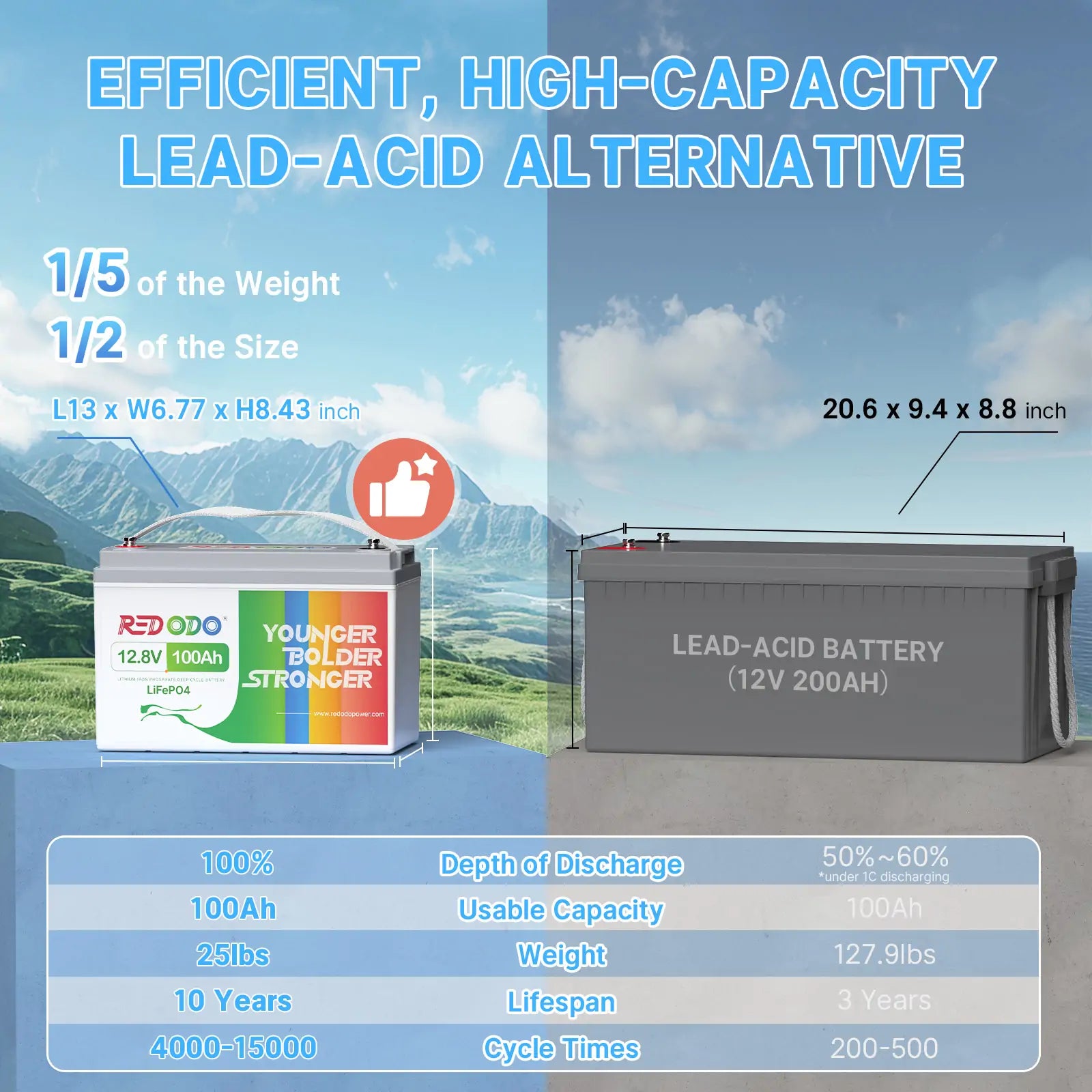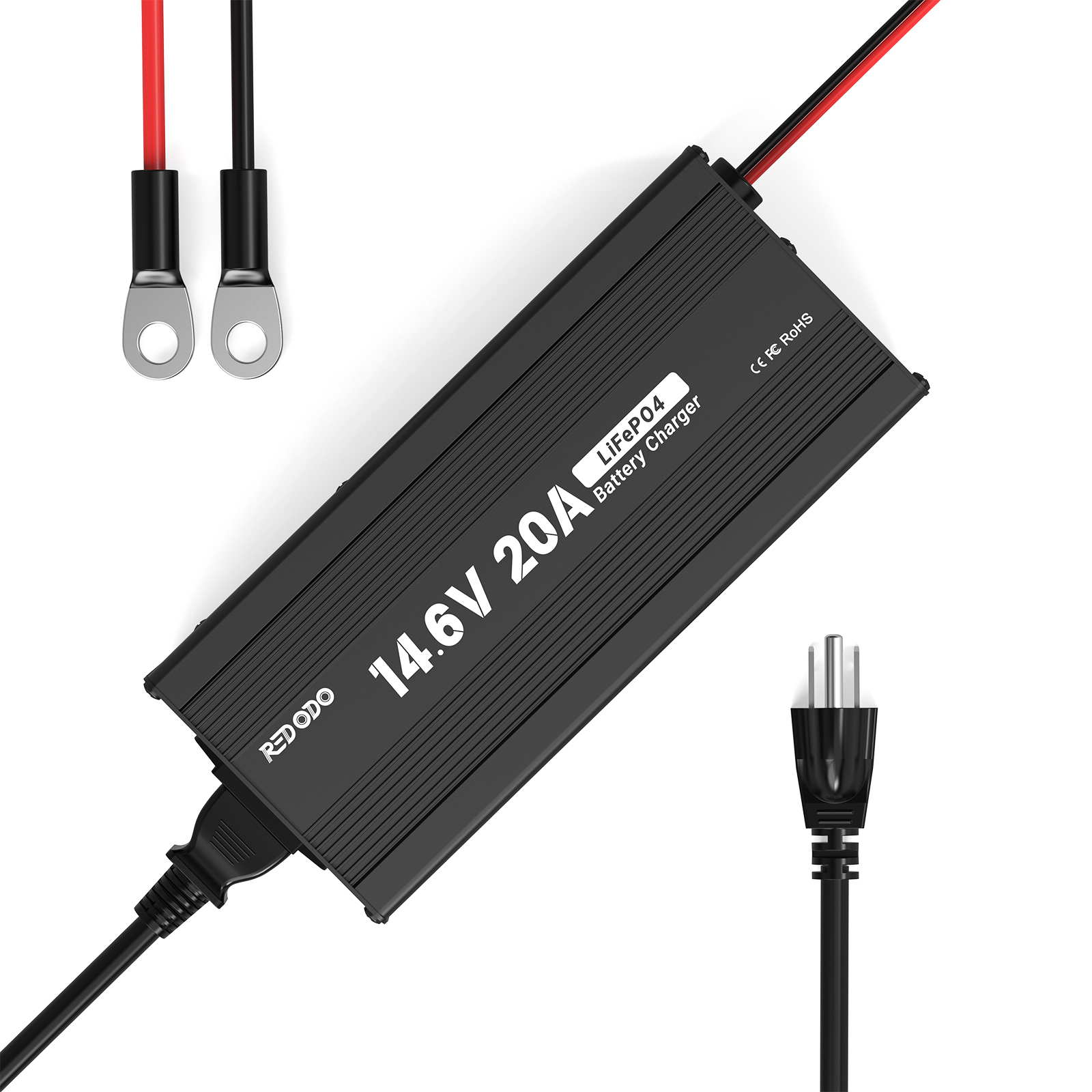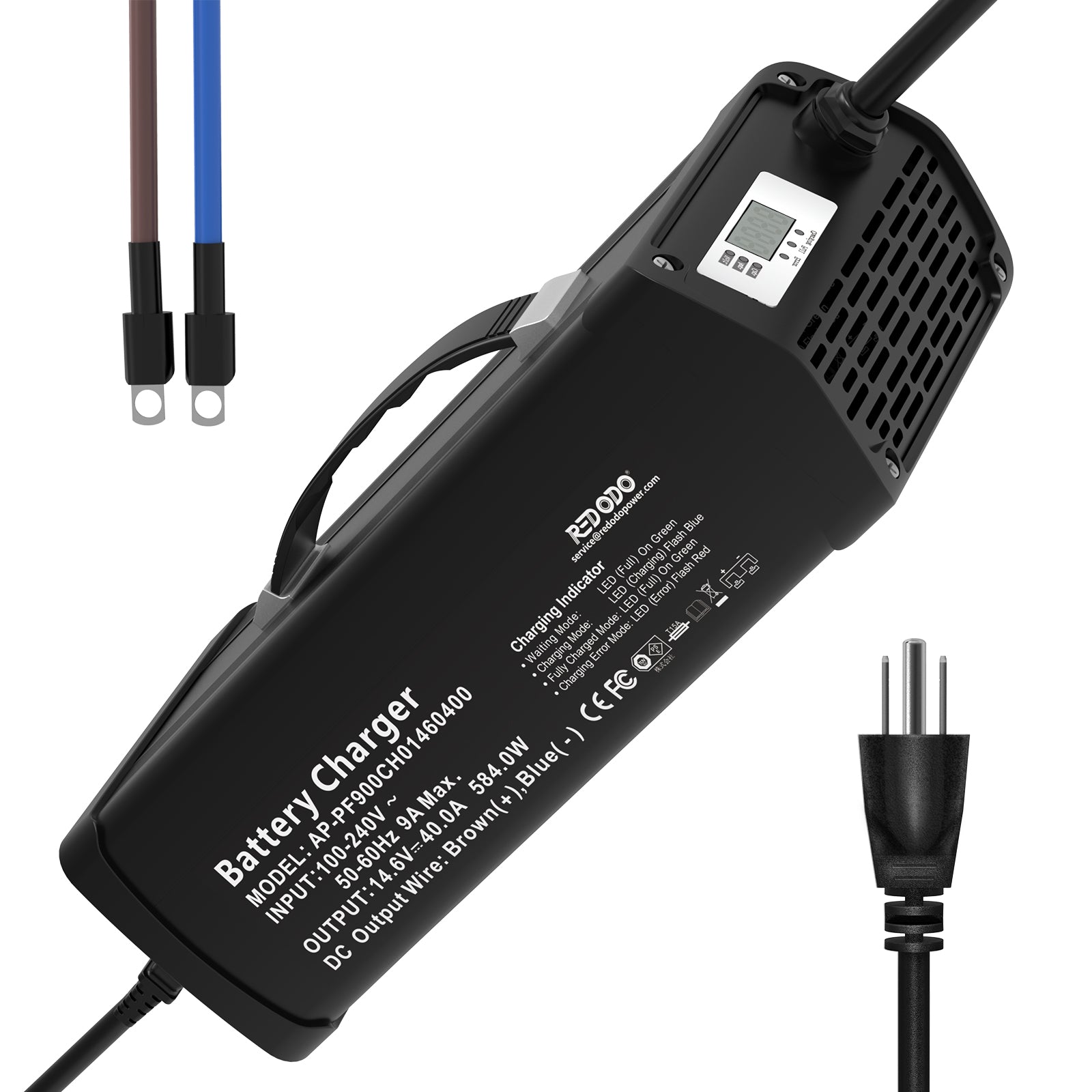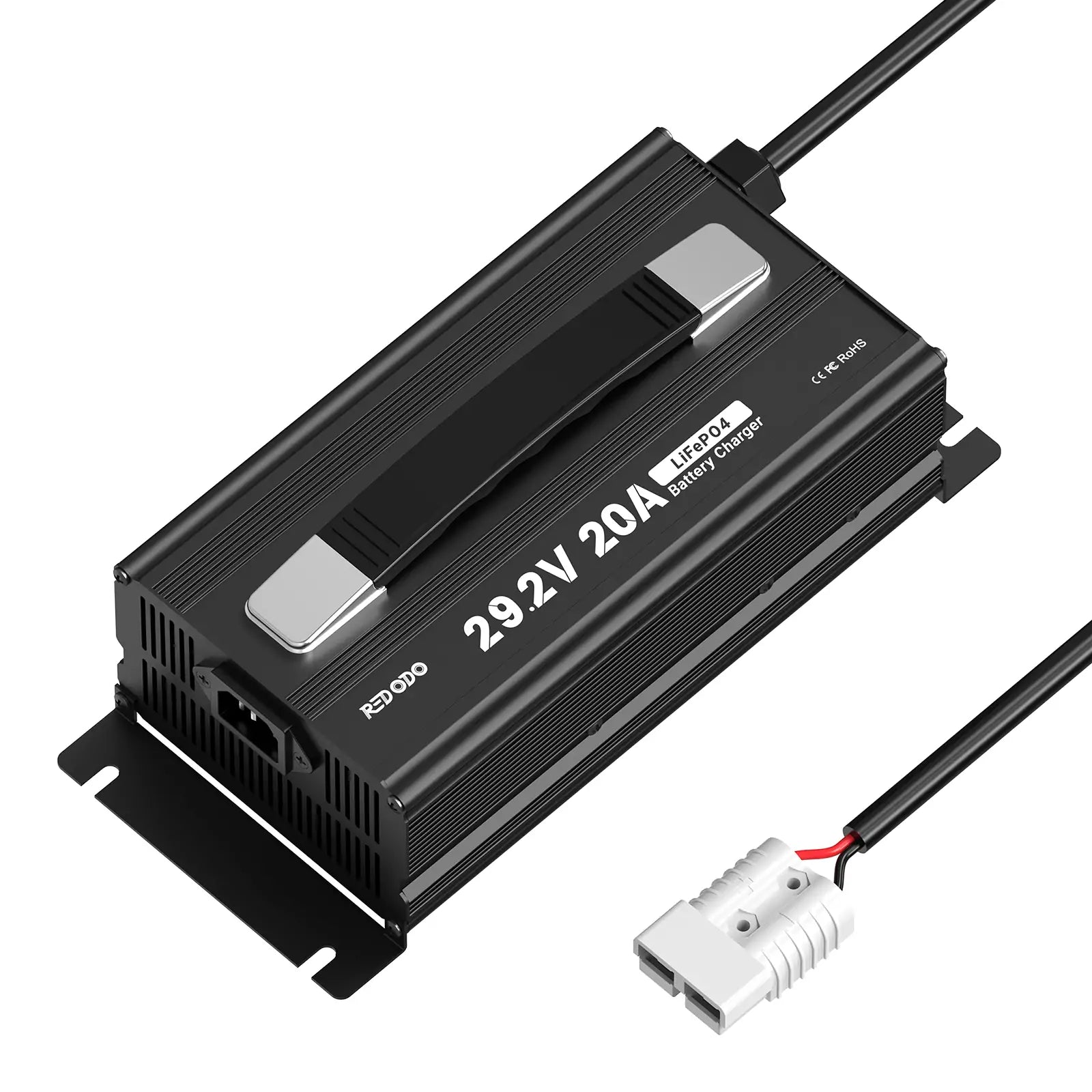When you're traveling in your RV, ensuring that your battery is properly charged is essential for a smooth and hassle-free journey. The RV converter plays a crucial role in this process, but many RV enthusiasts often find it challenging to determine if their converter is effectively charging the battery.
In this article, we'll explore the key indicators to help you understand if your RV converter is functioning correctly.
Understanding the RV Converter and its Role in Charging the Battery
The RV converter is a device that converts AC power from a shore power connection or generator into DC power to charge the RV's battery. Additionally, it supplies 12-volt DC power to the RV's electrical system when connected to shore power. This dual functionality makes it crucial to ensure the converter operates efficiently.
Some RV converters include inverter chargers, which can convert 120V AC to 12V DC, unlike converter chargers that function as one-way charging systems.
Regardless of the type of charger your RV converter uses, power can be sourced from a generator, the RV's alternator, a solar panel, or shore power.
Indicators of a Charging RV Battery
1. Use a Multimeter
One of the most reliable methods to determine if your RV converter is charging the battery is by using a multimeter. Connect the multimeter to the battery terminals and measure the voltage. If the reading is higher than the battery's resting voltage, it indicates that the converter is actively charging the battery.
2. Monitor the Battery Monitor Panel
Many modern RVs are equipped with a battery monitor panel that displays the battery's voltage level. When the RV is plugged into shore power and the converter is charging the battery, you should see the voltage level on the monitor panel gradually increase.
3. Listen for Fan Activity
RV converters frequently include integrated cooling fans that activate during periods of heavy load, such as battery charging. Continuous operation of the cooling fan while the RV is plugged into shore power typically indicates active charging of the battery by the converter.
4. Check for Proper Functioning of Appliances
When the battery is charging, you'll likely notice enhanced performance from your RV's electrical appliances. Brighter lights, a more powerful water pump, and improved function of other electrical devices indicate that the converter is actively charging the battery.
Common Reasons Why Inverters Fail to Charge and Troubleshooting
Inverters are essential for converting DC power to AC power, widely utilized in RVs, boats, and homes. However, they can face challenges, particularly when it comes to charging. Here, we'll delve into the main reasons why inverters fail to charge: battery problems, malfunctioning charging systems, and overloading.
1. Battery Issues
One of the most common reasons for an inverter failing to adequately charge the battery is due to a weak or completely discharged battery. If the inverter is connected to a battery that lacks sufficient charge or has completely lost its charge, it cannot draw the necessary energy to power devices and appliances effectively. This can lead to the inverter either producing no output or behaving unpredictably.
To address this issue, it's crucial to monitor the battery's voltage using a multimeter. Most batteries used with inverters should maintain a standard voltage of 12 volts. Ensure all connections are tight and free from corrosion. If the voltage drops below the standard level or if there are signs of corrosion on terminals or cables, consider recharging the battery or replacing it altogether.
2. Faulty Charging System
Insufficient charging in an inverter system can also result from issues with its internal charging components. A compromised charging circuit can block the current flow to the battery, leading to disruptions in the charging process. Similarly, a malfunctioning charge controller may fail to properly regulate the charging procedure. It's crucial to conduct a comprehensive inspection of each component to identify any that require repair or replacement.
3. Overloading and Circuit Interruptions
Overloading and circuit interruptions can severely impact the functionality of a home inverter system. Overloading happens when the inverter draws more energy than its designed capacity, potentially causing failure or complete shutdown. Circuit interruptions often occur when plug fuses blow or breakers trip in the distribution box, usually due to overload or a short circuit. Effectively managing the load on the inverter can help minimize these problems.
Troubleshooting Steps for Non-Charging Inverters
Check Battery Voltage and Connections
Before examining other components, it's essential to verify the battery voltage and connections. Start by turning off all electrical devices linked to the inverter and disconnecting any external power sources. Use a multimeter to measure the battery voltage. A fully charged battery typically registers between 12.6 and 12.8 volts. Inspect the battery terminals and wires for signs of corrosion, and clean these areas with a wire brush or sandpaper if necessary.
Inspect Charging System Components
Ensure that every component of your charging system is functioning properly. Inspect all fuses, wires, connectors, and switches within your charging setup. Replace any components that exhibit signs of wear or damage.
Advanced Solutions for Inverters Not Charging
If troubleshooting efforts fail to resolve charging issues, you may need to replace malfunctioning components such as charge controllers or, if the inverter has reached the end of its life cycle, consider replacing the entire unit.
Upgrading Your Electrical System
Improve the electrical system by upgrading to larger gauge wires between charging system components to minimize resistance and improve electricity flow. Upgrade to a more efficient charge controller, such as MPPT instead of PWM, or add an additional controller for high power demands. Investing in a smart charger can also optimize battery performance by preventing overcharging or undercharging.
Bonus Tip: Upgrading RV Batteries to Lithium for Greater Performance
Are you tired of dealing with terminal corrosion or frequently adding water? Consider upgrading to lithium batteries for your RV. Lithium batteries offer numerous advantages over traditional lead-acid batteries, including extended lifespan, faster charging times, and higher energy density. With lithium batteries, you can bid farewell to the hassle of regular maintenance tasks like cleaning terminal corrosion and refilling water.

Lithium batteries are also considerably lighter than lead-acid batteries, which can reduce your RV's overall weight, leading to improved fuel efficiency and better handling. Moreover, they offer a higher depth of discharge, allowing you to utilize more of the battery's capacity without causing damage, thereby providing more usable power.
While the initial cost of lithium batteries is higher than that of lead-acid batteries, their long-term benefits, such as reduced maintenance and extended lifespan, often justify the investment for RV owners who rely on their power systems extensively.
Before transitioning to lithium batteries, ensure that your RV's charging system is compatible with them. Some older charging systems may not support lithium batteries, so consulting with a professional is essential to determine if any modifications are needed.
Upgrading to lithium batteries can significantly enhance your RV's power system performance and reliability, offering a more enjoyable and trouble-free travel experience.
Conclusion
Ensuring that your RV converter effectively charges the battery is vital for a smooth and enjoyable travel experience. By applying the techniques outlined in this guide, you can reliably assess the performance of your RV converter. Regular maintenance and routine checks will prevent potential issues and maintain your RV's electrical system in optimal condition, enabling you to fully enjoy your adventures on the road.

Redodo

Redodo
Recent Post

6 Best Lightweight Trolling Motor Batteries in 2025

How Long Does a Trolling Motor Battery Last?

Convert RV from Lead-Acid to Lithium Battery: A Complete Guide

How Long Will a 200Ah Battery Run an Air Conditioner?




![⚡[$220 after Sign-Up] Redodo 12V 100Ah LiFePO4 Lithium Battery | Best Budget | For RV, Solar, Trolling Motor](http://www.redodopower.com/cdn/shop/files/Redodo_12v_100ah_lithium_battery_b9015ddd-64b5-4be2-8c88-392f0bb4ab30.jpg?v=1742973160)
![⚡[$294 after Sign-Up] Redodo 12V 140Ah Group 31 Lithium Battery with Bluetooth | 40% More Capacity | For RV, Marine, Solar Home](http://www.redodopower.com/cdn/shop/files/Redodo_12V_140ah_bluetooth_battery_ee6d5fd1-5c7d-4b9a-90ab-d54d06b29a04.jpg?v=1742967763)
![⚡[$524 after Sign-Up] Redodo 12V 300Ah Lithium LiFePO4 Battery | Replaces 6*12V 100Ah AGM Batteries | RV, Marine, Solar](http://www.redodopower.com/cdn/shop/files/Redodo_12V_300ah_lithium_deep_cycle_battery.png?v=1744797523)
![⚡[$239 after Sign-Up] Redodo 12V 100Ah Group 24 Bluetooth LiFePO4 Battery | Real-Time Battery Monitoring | For RV, Marine, Solar](http://www.redodopower.com/cdn/shop/files/Redodo_12V_100Ah_group_24_bluetooth_lithium_battery.jpg?v=1744253032)
![⚡[$220 after Sign-Up] Redodo 12V 100Ah Group 31 Bluetooth Lithium Battery | Real-Time Battery Monitoring | For RV, Marine, Solar](http://www.redodopower.com/cdn/shop/files/Redodo_12V_100ah_group31_bluetooth_lithium_battery.jpg?v=1745565708)
![⚡[$377 after Sign-Up] Redodo 12V 200Ah Lithium LiFePO4 Battery | 1280W Load Power | For RV, Solar, Off-Grid](http://www.redodopower.com/cdn/shop/files/Redodo12V200ahlithiumbattery.jpg?v=1735892910)